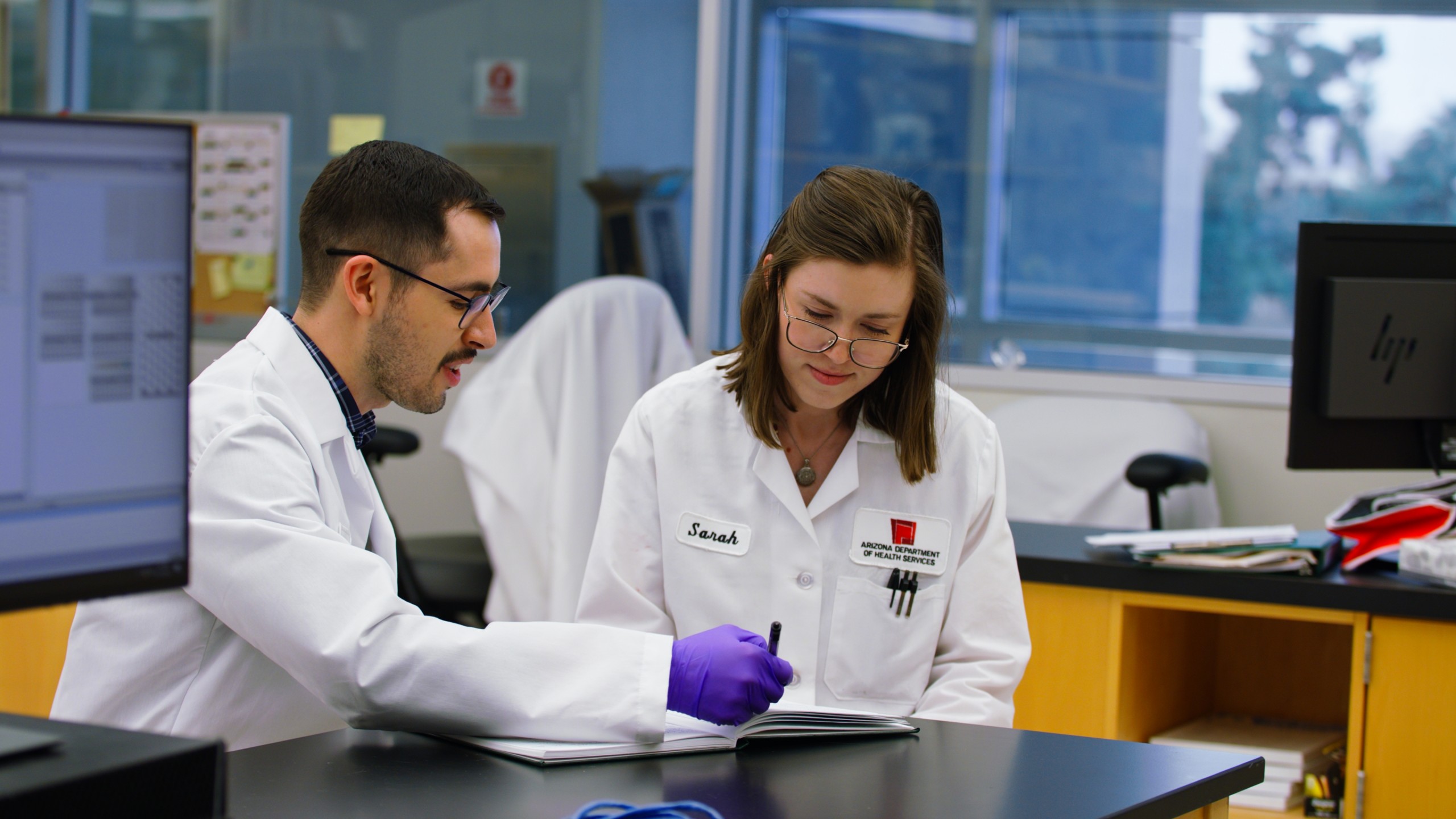Protecting Arizonans at every stage of life at the AZ State Health Lab

The Arizona State Public Health Laboratory protects you and your loved ones in ways you may not realize. In addition to licensure and certification services for laboratories across Arizona, the state lab tests air, food, water, and clinical samples for a murderer’s row of public health threats, including tuberculosis, heavy metal toxins, pesticides, and radioactive contaminants.
A new ADHS film series offers a behind-the-scenes look at how the work done at this cutting-edge facility impacts Arizonans at every stage of life — starting from the very beginning.
Newborn screening
Every child born in Arizona is tested for rare but life-altering medical conditions that most people have never heard of. From just six spots of blood, public health scientists rule out enzymatic deficiencies, metabolic conditions, hemoglobin disorders, spinal muscular atrophy, and other congenital disorders. Abnormal results will be confirmed, then sent to a follow-up specialist who contacts parents and providers to make sure the families get access to testing and treatment.
Emergency preparedness & response
As part of national emergency preparedness and response networks, the state lab stands ready to respond to biological, chemical, or radiological events here and across the country. In regular surge event drills, the bioterrorism and chemical warfare programs process huge volumes of samples. During real emergencies, the lab provides intelligence to medical providers, law enforcement, and political decision-makers.
Virology & serology
The Virology and Serology section tests human, mosquito, and animal samples for public health threats like influenza, rabies, and the West Nile virus. During the COVID-19 pandemic, this section conducted COVID-19 testing. Today, we continue to provide data to the state about the COVID-19 virus and its variants.
Opioid surveillance
The Opioid Surveillance program works with county medical examiners to better understand fatal drug overdoses in Arizona and provide data that helps get life-saving medication where it is most needed. Future testing will help provide data on nonfatal overdoses.
Tuberculosis
The state laboratory is the primary testing facility for drug-resistant tuberculosis in Arizona. Physicians across the state submit samples from suspected tuberculosis cases. Extraordinary fail-safes at the Biosafety Level 3 facility keep our public health scientists safe as they test these samples for highly infectious agents. The results help the provider choose the medication that will best treat their patient’s infection.
To arrange an in-person tour of the Arizona State Health Laboratory for your government, educational, or science-based organization, please contact us qi-opslab@azdhs.gov.
Republished with Permission.
Videos embedded by AZBio.
